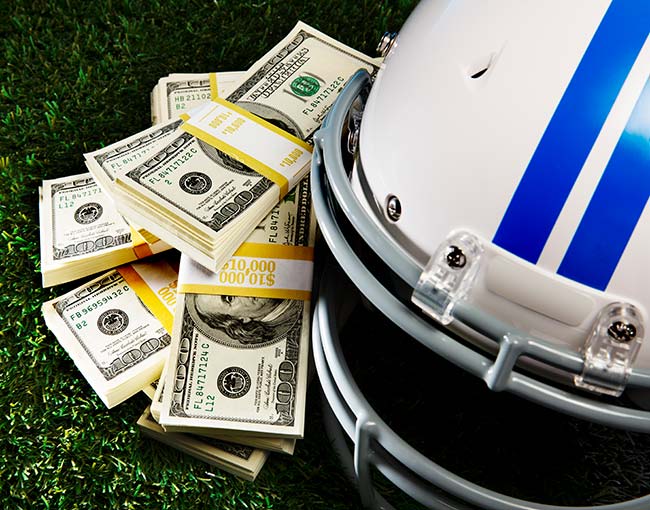With sporting events looking to come back online following COVID-19 restrictions, so are the business opportunities tied to sports betting.
By way of history, on May 14, 2018, the United States Supreme Court struck down the Professional and Amateur Sports Protection Act which outlawed sports betting outside of Nevada and paved the way for individual states to determine their own pathways to legal sports betting. Murphy v. Nat'l Collegiate Athletic Ass'n, 138 S. Ct. 1461 (2018); see also 28 U.S.C. §3702.
Fast forward to June 28, 2019, when Illinois Governor Pritzker signed the Illinois Gaming Expansion Bill into law and Illinois sports betting was legalized through the Sports Wagering Act.
Illinois formally launched legal online sports betting ahead of the planned 2020 NCAA Basketball Tournament with a $1 million bracket challenge game hosted at the Rivers Casino on March 9, 2020. Unfortunately the launch was short lived. The Sports Wagering Act – which requires in-person registration of online booking accounts – was essentially quarantined with the rest of Illinois under multiple stay at home orders.
In an effort to facilitate online and mobile growth, Illinois Governor Pritzker issued a temporary Executive Order 2020-41 on June 4, 2020, which read, in part:
“During the duration of the Gubernatorial Disaster Proclamations, the provisions in the Sports Wagering Act, 230 ILCS 45/25-30(f), 25-35(f), and 25-40(i), requiring in-person creation of a sports wagering account at a facility authorized pursuant to the Act in order to participate in sports wagering offered over the internet or through a mobile application, are suspended.” (emphasis added).
On June 8, 2020, the Illinois Gaming Board issued a revised press release which read, in part:
“Temporarily suspending the in-person registration requirement will allow fans to create online accounts and place wagers from the safety of their own homes while continuing to provide the state with revenue. Executive Order 2020-41 will remain in effect during the duration of the Gubernatorial Disaster Proclamation or the Illinois Gaming Board issues a competitively bid master sports wagering license.” (emphasis added).
Three days later, on June 11, 2020, the Illinois Gaming Board adopted a new resolution to delegate certain authority to the administrator and approved seven casinos for masters sports wagering licenses. The significance of these licenses is rooted in the requirements of Section 25-35 of SB690: “An owners licensee issued a master sports wagering license may conduct sports wagering: (1) at its facility in this State that is authorized to conduct gambling operations under the Illinois Gambling Act; and (2) over the Internet or through a mobile application.”
Despite such efforts, eager Illinois sports betters are still unable to participate. Any Illinois casino granted one of these licenses must also comply with the Illinois Gambling Board’s rules to make a request to commence online wagering under Rule 1100. Furthermore, these licenses trigger an 18-month waiting period for regulators to select Illinois’ three competitively bid online-only licenses under the Sports Wagering Act. Of note, some online-only companies are searching for regulatory loop holes by partnering with or purchasing brick-and-mortar gambling facilities.
Adding another layer of legal concern, stakeholders may be questioning whether the Illinois Governor Pritzker has the authority (as opposed to health officials and occupational licensing boards) to remove the in-person registration requirement, even temporarily.
Sports wagering is believed to be a critical component of the Illinois budget as it is in many states. The beginning of allowable sports betting, and the timing of the pandemic has left many questions unanswered. Ultimately, sports and gambling enthusiasts are keeping a careful watch on both the Illinois Governor’s Office and Illinois Gaming Board as the state moves closer to rich possibilities mobile sports betting may provide.
Bob Wallace is the chair of Thompson Coburn’s Sports Law Group.
Click here to subscribe to News & Insights from Thompson Coburn LLP related to our practices as well as the latest on COVID-19 issues.

